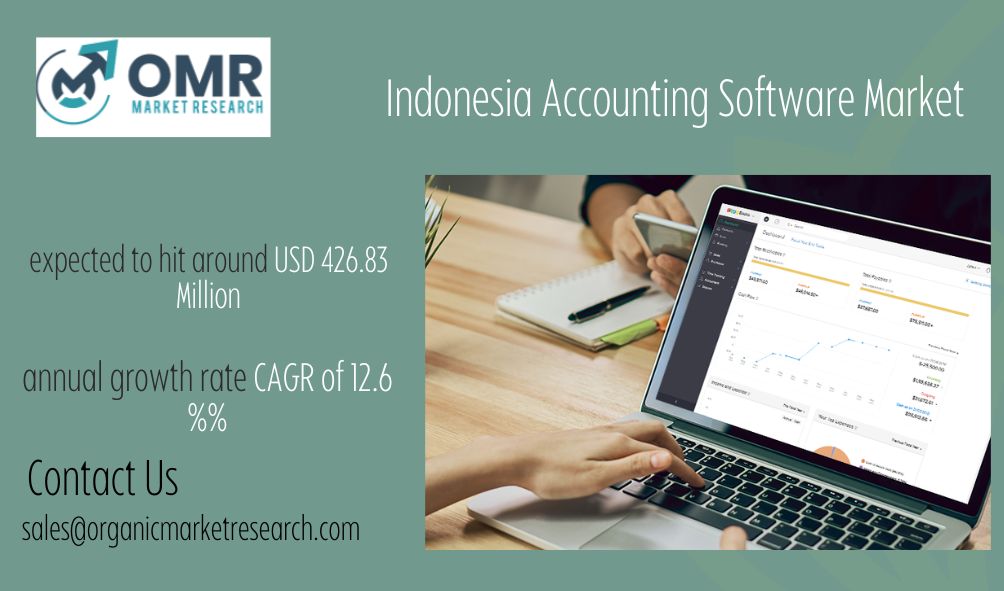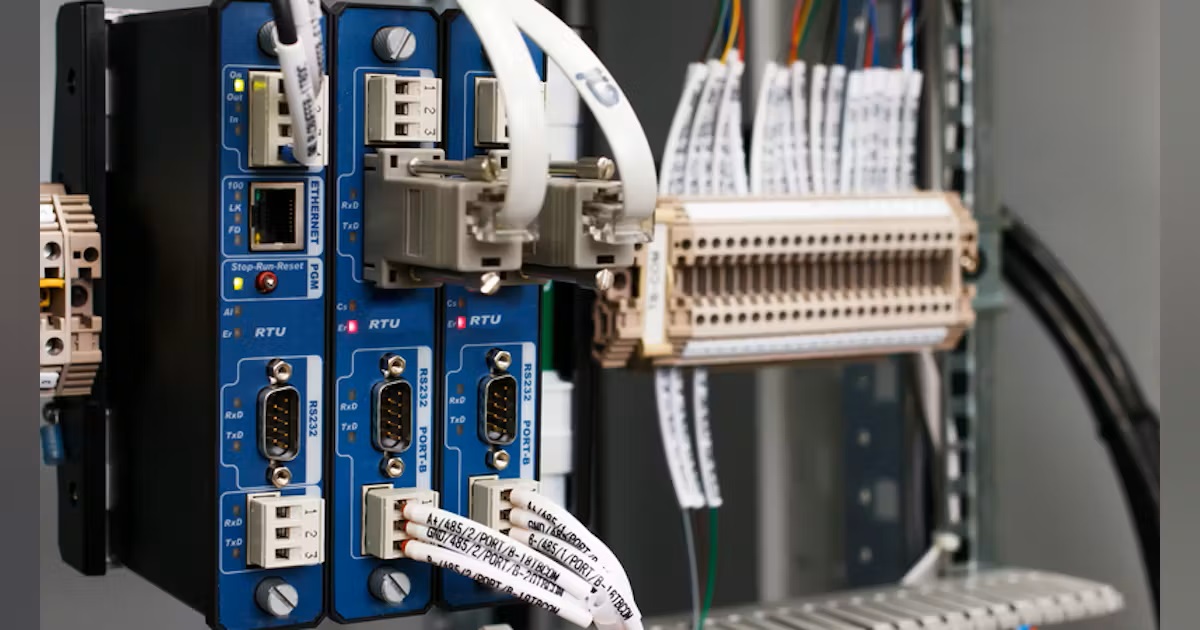Indonesia Accounting Software market size was USD 143.9 Million in 2023 and the market is projected to touch USD 426.83 Million by 2032, at a CAGR of 12.6 % during the forecast period. The increase in transactions that are quicker and error-free is driving the size of the Indonesian accounting software industry to develop steadily. In addition, the market is expanding as a result of the increased popularity of environmental, social, and governance (ESG) reporting as well as growing awareness of the benefits of outsourcing accounting and financial functions.
The rise of the accounting software market is also being aided by the growing partnership of micro, small, and medium-sized businesses with online retailers as well as the use of blockchain- and internet-based accounting service platforms. Because businesses are finding it difficult to keep up with the changes, the complexity of tax legislation is increasing, which is contributing to the swiftness of the accounting software industry in Indonesia. In October 2023, FreshBooks unveiled its ground-breaking collaborative accounting approach, which fundamentally altered the structure of the accountant-client relationship. Small business owners can focus on strategic financial advice by using this innovative approach, which incorporates them in the financial processes of accounting firms. The model promotes more understanding and collaboration among participants by involving clients in financial tasks, which in turn results in more informed corporate decisions. This partnership is made possible by FreshBooks’ user-friendly platform, which creates a connection aimed at long-term success by bridging the gap between traditional accounting procedures and client interaction. The presence of both major and small software suppliers and their extensive market penetration have resulted in a highly fragmented accounting software market in Indonesia. Unorganized players are becoming more competitive because of price gaps and cost limitations. With cloud-based accounting software eventually displacing on-premises software, the emerging market for accounting software is nevertheless booming.

Indonesia Accounting Software report scope and segmentation.
Indonesia Accounting Software dynamics
The factors influencing the dynamics of the Indonesia Accounting Software market include regulatory mandates, technological advancements, and increasing industrial safety awareness. The automation of repetitive and tedious operations is the main benefit of artificial intelligence (AI) in accounting software. AI-powered solutions ensure greater efficiency by handling processes like payroll calculations, data entry, and invoice processing quickly and accurately. By reducing the possibility of human error and saving time, this automation guarantees more accuracy in financial records. In AI-driven accounting software, stakeholders can receive up-to-date financial information in real-time and receive accurate financial data whenever needed. Executives and managers can also access this data conveniently. Real-time reporting also enhances corporate strategy for better results and guarantees prompt course corrections and adjustments. To develop AI-integrated accounting software in Indonesia, companies including Robofin Cloud Accounting, Ramco Systems, QuickBooks, and Odoo are actively utilizing their technological capabilities, which is supporting the growth of the nation’s industry. market growth trends like the widespread use of cloud-based accounting software, increased personalization options, and a greater emphasis on analytics, forecasting, and scenario planning, among other things, are encouraging the use of software to guarantee improved accuracy and efficiency in accounting procedures. As a result, international trends are encouraging the use of accounting software in various industrial settings throughout Indonesia, which is driving the country’s accounting software market’s expansion.
Indonesia Accounting Software drivers
Digital Transformation and Adoption of Cloud Technology
In addition, in large part to the growing internet penetration and cloud computing innovations, Indonesia is undergoing a dramatic digital change in many different areas. The companies of all sizes now see the value of implementing digital technologies to optimize operations and boost productivity. Cloud-based accounting software offers numerous advantages, such as enhanced communication, reduced expenses, expandability, and instantaneous fund accessibility. Cloud-based accounting software is becoming more and more popular in Indonesia as more companies go digital. The government’s programs and regulations encouraging businesses to use digital technologies are another factor supporting this tendency. The market for accounting software is expanding because the move to cloud computing is making it possible for companies to handle their finances more successfully.
Growing Small and Medium Enterprises (SME) Sector
Indonesia’s SME sector is expanding quickly and is becoming a major economic force in the nation. Due to their lack of resources and experience, SMEs frequently struggle with financial management, compliance, and reporting. SMEs can manage their financial operations more accurately and effectively at a lower cost with the help of accounting software. As more small and medium-sized companies become aware of the advantages of employing accounting software such as improved financial control, automated repetitious chores, and compliance with local regulations—the market is expanding. Furthermore, a lot of accounting software companies are making these tools more accessible by providing customized solutions and reasonably priced pricing plans made especially for SMEs. Accounting software use is anticipated to increase as the SME sector grows, further driving market expansion.
- Restraints:
Limited Digital Literacy and Resistance to Change
One factor driving the Indonesian accounting software industry is the low level of digital literacy among a sizable segment of the populace, particularly in small and medium-sized businesses (SMEs). The inability of many employees and business owners to utilize accounting software proficiently may cause opposition to the adoption of new technology. This lack of digital skills may prevent accounting software from being implemented and used effectively. In addition, apprehension about data breaches, perceived complexity, and the inability to devote time and money to learning new systems are common reasons for opposition to the shift from conventional, manual accounting processes to digital alternatives. It will take a lot of work to overcome this reluctance in terms of teaching, training, and proving the real advantages of accounting software.
High Initial Costs and Maintenance Expenses
The accounting software implementation and acquisition often come with hefty upfront expenses, which can be very restrictive, especially for smaller companies with tighter budgets. Although cloud-based solutions can save money over time, there can be a significant upfront cost associated with software licenses, training, and possible customisation. The cost may also increase due to updates, subscription costs, and continuing maintenance. The expenses could be a deterrent for many Indonesian SMEs, leading them to continue utilizing outdated accounting methods or less expensive but inefficient solutions. In order to encourage adoption among cost-conscious businesses, software providers must get around this restriction by offering flexible pricing structures, fairly priced subscription plans, and evidence of a quantifiable return on investment.
- Opportunities:
Expansion of Cloud-Based Solutions
The Indonesia accounting software industry has a lot of potential due to the expanding acceptance and use of cloud-based solutions. The advantages of cloud-based accounting software, which are especially attractive to small and medium-sized businesses (SMEs), include scalability, real-time data access, cheaper upfront expenses, and ease of use. It is anticipated that demand for cloud-based accounting systems would rise as more companies become aware of these benefits. Furthermore, cloud-based software is becoming more accessible to enterprises in both urban and rural areas of Indonesia due to the proliferation of dependable internet infrastructure throughout the country. Accounting software providers may profit from this trend by providing reliable, safe, and intuitive cloud-based solutions that are customized to meet the requirements of Indonesian companies. This involves functions that can improve user experience and encourage adoption, such as local language support, interaction with other business tools, and mobile accessibility.
- Segment Overview
By Type, The Indonesia Accounting Software market is segmented into Payroll Management Software, Custom Accounting Software, Billing and Invoice Software, Others. Payroll management software ensures compliance as well as effectiveness in business payroll processes by automating tax deductions, staff salary processing, and other payroll-related tasks. This kind of software is especially well-liked by medium-sized to large businesses that manage intricate payroll systems. Custom accounting software, on the other hand, is created to order to meet the particular needs of each business; it provides features and flexibility that standard accounting software would not. A company that uses this kind of software require customized accounting solutions that follow industry standards as well as internal operating procedures. The expansion of Indonesia’s accounting software market depends on these two sectors, which meet the diverse needs of businesses of all kinds.
By Component, The Indonesia Accounting Software market is segmented into Services, Software. Payroll management software and bespoke accounting software are important subcategories in the software market. Contrarily, custom accounting software is made to match the unique requirements of every company; it offers features and flexibility that standard accounting software might not. Businesses that need customized accounting solutions that fit their own operational procedures and industry standards tend to select this kind of software. The services including software implementation, training, and ongoing assistance are some of the goods provided by this industry. These services are crucial because they let businesses use accounting software effectively and simplify their financial management processes. While services for training ensure that staff members can use the program efficiently, services for implementation help businesses integrate new software with their existing systems. In order to keep the program current and effective, support services offer continuous help with any technical problems and updates. In order to meet the varied demands of companies of all sizes and in all industries, the software and services segments are equally important to the expansion of the accounting software market in Indonesia.
Indonesia Accounting Software Overview by Region
The accounting software market in Indonesia demonstrates significant geographical differences, which can be attributed to factors such as economic activity, business density, & technological adoption in various regions of the nation. Due to the significant concentration of businesses, ranging from large corporations to SMEs, major urban centers like Jakarta, Surabaya, and Bandung are leading the way in market acceptance. These places have a high need for sophisticated accounting solutions like payroll administration and custom accounting software as companies try to streamline their financial operations and ensure regulatory compliance. In order to achieve more effective and efficient financial management, businesses in well-known tourist and creative hubs like Yogyakarta and Bali are increasingly turning to accounting software. Furthermore, slower uptake of these technologies in smaller towns and rural areas is being driven by government measures to assist digital transformation and rising levels of digital literacy. In conclusion, the geographical features of the Indonesian accounting software market demonstrate that the archipelago’s desire for sophisticated financial management systems is growing, with urban areas leading the way.
Indonesia Accounting Software market competitive landscape
Leading companies such as PT Hashmicro Solusi Indonesia (EQUIP), Pt Acosys Data, PT Cipta Piranti Sejahtera, Zahir Internasional, Deskera, PT 3E Accounting Services, PT Ramco Systems Indonesia, Intuit Inc., 2NDSITE INC. and Odoo SA. The accounting software market in Indonesia is characterized by a dynamic environment, with leading firms constantly offering innovative solutions to gain market share. The companies are working with other market participants to introduce a new line of products. In February 2024, Intuit Inc. introduced QuickBooks Solopreneur, a new solution designed especially for one-person businesses. This comprehensive application provides easy-to-use tools for goal tracking, controlling business expenditure, and money management to assist solopreneurs stay compliant with tax laws and attain financial security. With the use of QuickBooks Solopreneur’s user-friendly features and toolkit, solopreneurs may manage responsibilities related to finances.
Scope of Indonesia Accounting Software report
Indonesia Accounting Software report segmentation
In case you don’t find what, you are looking for, please get in touch with our custom research team at
Latest Report
Contact Us
+91 9319642100
sales@organicmarketresearch.com
Noida One Tower Sec 62 Noida 201301
Website: https://organicmarketresearch.com













